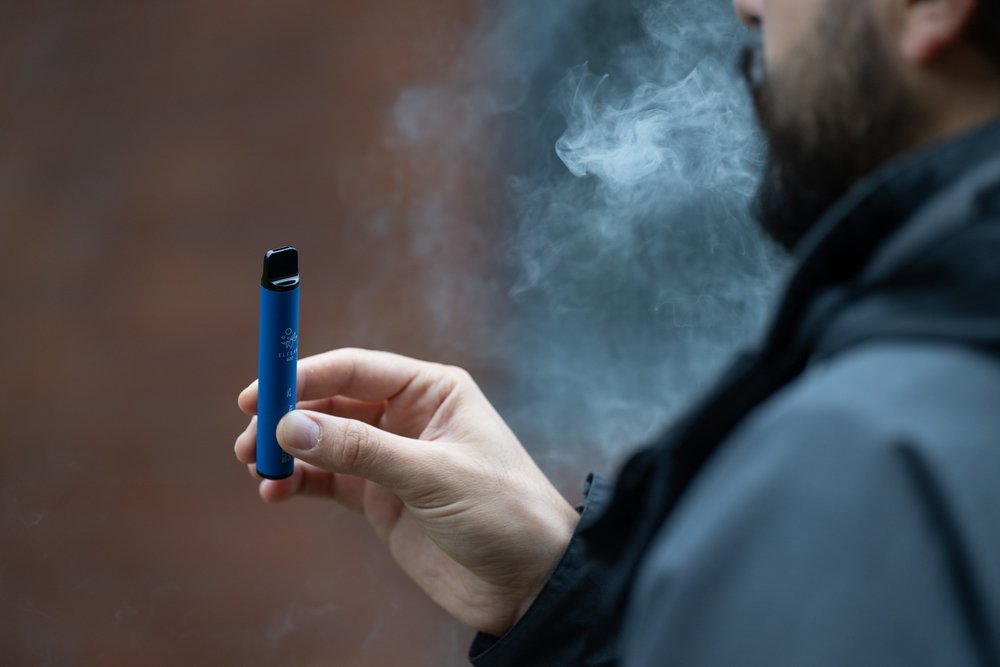Key points:
- Ban on disposable vapes which have driven alarming rise in youth vaping.
- New powers to restrict vape flavours, introduce plain packaging and change how vapes are displayed in shops so they don’t appeal to children.
- New law will make it illegal to sell tobacco products to anyone born on or after 1 January 2009, delivering on the Prime Minister’s pledge to create a smokefree generation.
The measure comes as part of the government’s response to its consultation on smoking and vaping, which was launched in October last year.
Recent figures show the number of children using vapes in the past three years has tripled. Use among younger children is also rising, with 9% of 11 to 15-year-olds now using vapes. The long-term health impacts of vaping are unknown and the nicotine contained within them can be highly addictive, with withdrawal sometimes causing anxiety, trouble concentrating and headaches. While vaping can play a role in helping adult smokers to quit, children should never vape.
Disposable vapes have been a key driver behind the alarming rise in youth vaping, with the proportion of 11 to 17-year-old vapers using disposables increasing almost ninefold in the last two years.
As part of this package, new powers will be introduced to restrict flavours which are specifically marketed at children and ensure that manufacturers produce plainer, less visually appealing packaging. The powers will also allow government to change how vapes are displayed in shops, moving them out of sight of children and away from products that appeal to them like sweets.
To crack down on underage sales, the government will also bring in new fines for shops in England and Wales which sell vapes illegally to children. Trading standards officers will be empowered to act ‘on the spot’ to tackle underage tobacco and vape sales. This builds on a maximum £2,500 fine that local authorities can already impose.
The Prime Minister, Rishi Sunak, said: “As any parent or teacher knows, one of the most worrying trends at the moment is the rise in vaping among children, and so we must act before it becomes endemic.The long-term impacts of vaping are unknown and the nicotine within them can be highly addictive, so while vaping can be a useful tool to help smokers quit, marketing vapes to children is not acceptable. As Prime Minister I have an obligation to do what I think is the right thing for our country in the long term. That is why I am taking bold action to ban disposable vapes – which have driven the rise in youth vaping – and bring forward new powers to restrict vape flavours, introduce plain packaging and change how vapes are displayed in shops. Alongside our commitment to stop children who turn 15 this year or younger from ever legally being sold cigarettes, these changes will leave a lasting legacy by protecting our children’s health for the long term.”
As well as benefitting children’s health, the ban will have a positive impact on the environment. Five million disposable vapes are thrown away each week, up from 1.3 million from last year. Over a year this is equivalent to the lithium batteries of 5,000 electric vehicles.
Environment Secretary Steve Barclay said: Not only are disposable vapes often targeted, unacceptably, at children – they also represent a huge and growing stream of hard-to-recycle waste, with nearly 5 million thrown away every week. This historic announcement will be a powerful tool in support of our efforts to crack down on waste and boost recycling, as well as helping to create the first smokefree generation.
To help ensure the success of the smokefree generation plan, £30 million new funding a year will be provided to bolster enforcement agencies – including Border Force, HM Revenue and Customs (HMRC) and Trading Standards – to implement these measures and stamp out opportunities for criminals.
Today, HMRC and Border Force will publish a new Illicit Tobacco Strategy, ‘Stubbing Out the Problem’, which:
- Sets out their continued commitment to reduce the trade in illicit tobacco, with a focus on reducing demand, and to tackle and disrupt organised crime behind the illicit tobacco trade.
- Highlights the cost to the UK in lost tax revenue and the burden to taxpayers, the undercutting of law-abiding businesses, and the funding of wider organised crime through illicit tobacco sales.
Vaping alternatives – such as nicotine pouches – will also be outlawed for children who are increasingly turning to these highly addictive substitutes. The government has again reiterated its commitment to bring about the first smokefree generation and introduce legislation so children turning fifteen this year or younger can never legally be sold tobacco.




